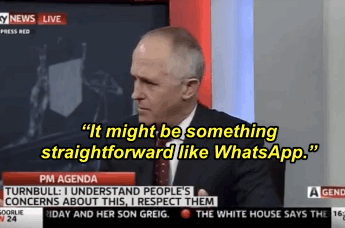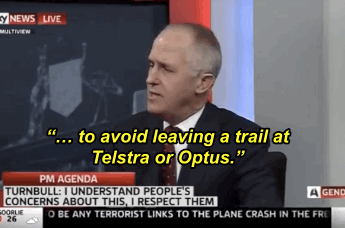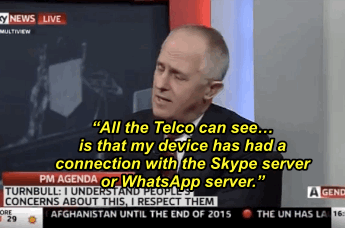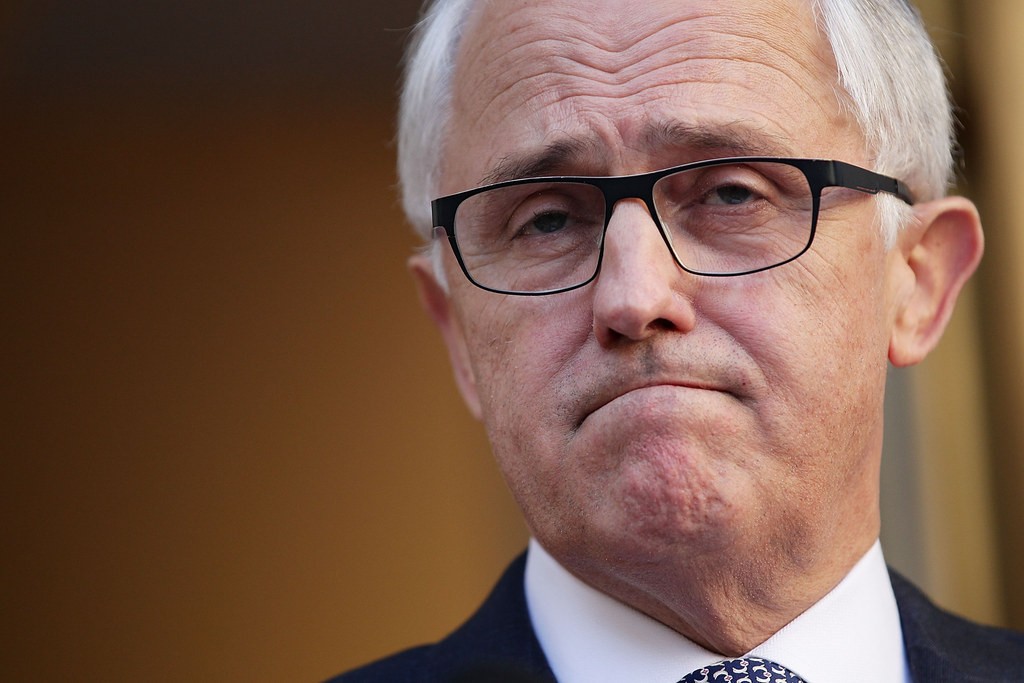Good morning Australia! Welcome to the new era of mandatory data retention! Hooray!
From today, telecommunication companies will be forced to collect and store all your metadata for a period of up to two years.
That means Telstra, Optus, iiNet and the others, will be keeping every record of who you call/message/email, when you call/message/email and where you are when you do it.
They WON'T collect what you say. But all the other details are there.
Several agencies, like the police and government departments, can get access to this metadata by requesting it from the telcos, and they won't need a warrant, meaning there's very little judicial oversight.
There are some very simple ways around local, Australian metadata collection.
Let this guy, former communications minister (now PM) Malcolm Turnbull explain...


Back in March, Turnbull laid out the very simple ways Australians can get around leaving metadata to be collected.
"You now have the ability by using over-the-top applications it might be something straightforward like WhatsApp. It might be a more encrypted over-the-top application to avoid leaving a trail at Telstra or Optus," he said.
Talking through the communications apps that don't leave a trail - WhatsApp, Skype, Viber, Threema, FaceTime or his personal favourite Wickr - he laughed that he knew a lot about ways to avoid metadata collection.
These apps leave a small data signal with Telstra and Optus. But they can't collect the metadata.


"All that the telco can see, insofar as it can see anything, is that my device has had a connection with the Skype server or the WhatsApp server.
"It doesn't see anything happening with you."
Bring it home Turnbull.
"There are always ways for people to get around things, but of course a lot of people don't, and that's why I've always said the data retention laws, the use of metadata, is not a silver bullet.
"It's not a 100% guarantee. It is one tool in many tools."
Watch the perfect explanation here, uploaded by Greens senator Scott Ludlam.
UPDATE 1800 AEST: Snippets from a powerful old speech from Turnbull, calling for online privacy, started circulating on Tuesday.

For how long should there be a record of our web browsing? Or of our emails? If we choose to delete our browsing history or emails or tweets or Facebook entries – should they not be deleted everywhere and not just on our own computer?As a matter of principle I believe the answer must be yes – if I am lawfully entitled to burn copies of the letters I have written to you and the letters you have sent me in return, why can I not do the same to my emails. If I can throw my diary and my photo album in the bin, why can I not delete my Facebook page?Well I can, can't I?But is a deleted email really deleted? How do we know the web page we thought we had deleted has not been cached somewhere. How can we be sure the embarrassing photo has not been copied, the stupid blog post or tweet captured in a screen shot.Put another way, if we have the right to record something, and it is of a private quality unlike company or financial records which must be retained, should we not have the right to delete it?
